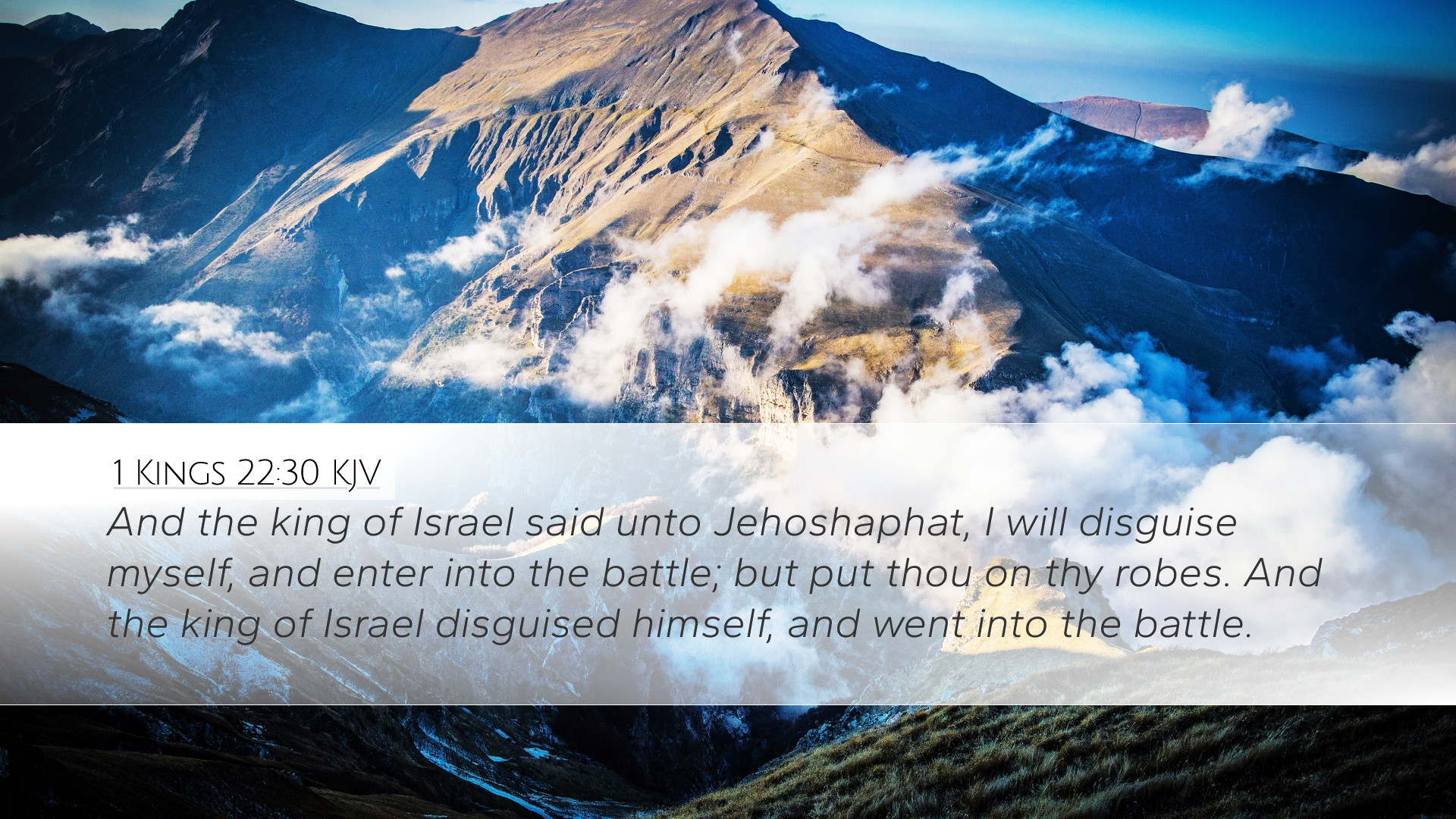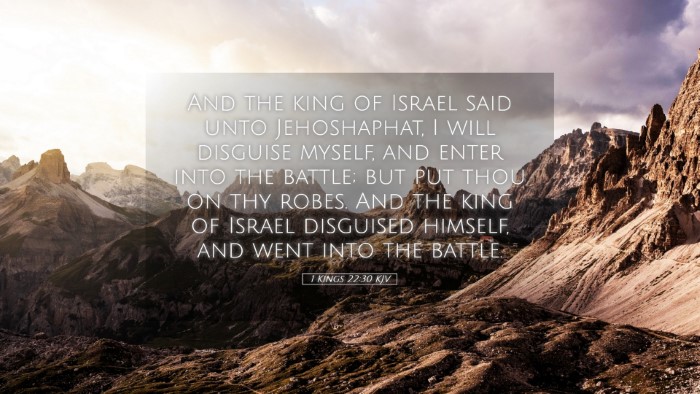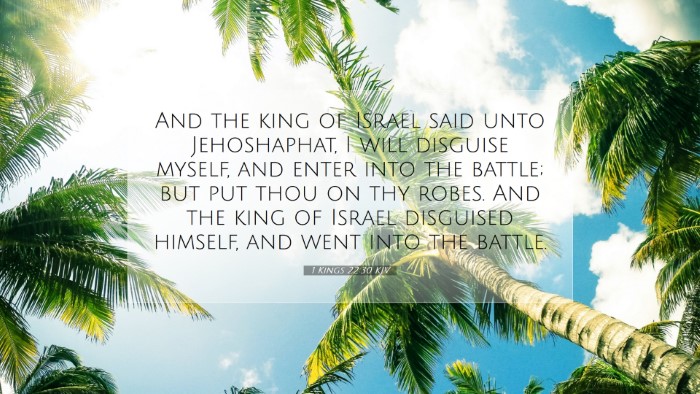Commentary on 1 Kings 22:30
Verse Context: 1 Kings 22:30 states, “And the king said unto Jehoshaphat, I will disguise myself, and enter into the battle; but put thou on thy robes. And the king of Israel disguised himself, and went into the battle.” This moment occurs amidst complex political maneuvers involving King Ahab of Israel, his alliance with King Jehoshaphat of Judah, and the prophetic voices that surround them.
Historical and Theological Background
Commentary Insights:
- Matthew Henry:
Henry observes that Ahab's actions demonstrate a lack of faith in God's will and protection, as he resorts to disguise rather than trusting in divine Providence. This reflects a recurring theme of flawed human reasoning versus divine sovereignty.
- Albert Barnes:
Barnes discusses the political context of Ahab’s reign, highlighting the significance of his alliance with Jehoshaphat and the reliance on prophetic voices for guidance. Ahab's decision to disguise himself can be seen as an act of desperation amidst the impending dangers of war.
- Adam Clarke:
Clarke notes the symbolism of robes and attire in ancient times, suggesting that they represent authority and identity. Ahab's choice to dress inconspicuously reflects his fear and instability. In contrast, Jehoshaphat's adherence to his royal robes signifies faith in God’s plan.
Thematic Analysis
Deception versus Truth:
-
The narrative challenges the reader to consider the futility of human deception in the face of divine truth. Ahab's attempt to disguise himself could symbolize a broader theme of attempting to manipulate circumstances rather than yielding to God's will.
-
Jehoahaz’s role as a king contrasted with Ahab’s actions emphasizes the importance of humility and righteousness in leadership. The disparity between their approaches could serve to impart lessons on integrity in governance.
Practical Application
Lessons for Today's Leaders and Believers:
-
**Trust in God's Protection:** Leaders in both church and state can learn from Ahab's misguided reliance on disguise rather than on God’s promise of protection. Faith should precede political strategies.
-
**Integrity in Identity:** The admonition against disguise speaks to the importance of authenticity. In ministry and leadership, one must not lose sight of their true calling and identity in pursuit of success or safety.
-
**Seeking Divine Counsel:** Just as Ahab sought prophets, today’s leaders should actively seek godly counsel and wisdom, aligning their decisions with scriptural guidance to ensure they are acting in accordance with God’s will.
Conclusion
The account in 1 Kings 22:30 serves as a poignant reminder of the need for reliance on God rather than human means in facing life's battles. Through the insights of prominent biblical commentators, we see how the decisions made in this passage echo through history, offering timeless lessons about faith, integrity, and the pursuit of divine truth over earthly stratagems.


